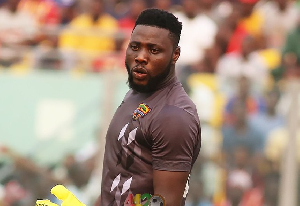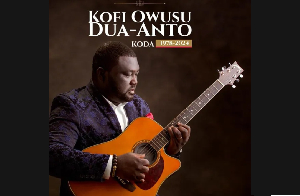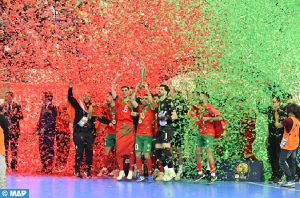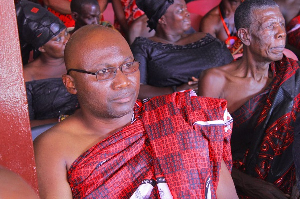- Home - News
- TWI News | TV
- Polls
- Year In Review
- News Archive
- Crime & Punishment
- Politics
- Regional
- Editorial
- Health
- Ghanaians Abroad
- Tabloid
- Africa
- Religion
- Election 2020
- Coronavirus
- News Videos | TV
- Photo Archives
- News Headlines
- Press Release
Opinions of Wednesday, 30 December 2009
Columnist: Okoampa-Ahoofe, Kwame
Dennis Brutus (1924-2009): Africa's Most Refined Poet - A Tribute
By Kwame Okoampa-Ahoofe, Jr., Ph.D.
In the wake of his passing on Dec. 27 at the gloriously mature age of 85, Prof. Olu Oguibe, interim director of the African-American Studies Institute at the University of Connecticut, was quoted to be rather mischievously claiming that “[Dennis] Brutus was arguably Africa’s greatest and most influential modern poet after Leopold Senghor (1906-2001) and Christopher Okigbo” (1932-1967). For my part, and I make bold to assert without fear of contradiction that, indeed, “Dennis Brutus was a poet of unbested refinement and the most delicate of esthetic sensibilities among Africa’s major poets of the twentieth century.” Needless to say, it amounts to grossly and flagrantly shortchanging the truth and actuality of his esthetic poignancy for any critic to cavalierly claim Nigeria’s Christopher Okigbo to have esthetically subordinated the celebrated South African anti-Apartheid firebrand activist. I am, of course, fully cognizant of the source of the Okigbo Myth, a largely ethno-nationalist campaign geared towards perpetually preempting the vigorously contested landscape of both twentieth- and twenty-first century African poetry. For starters Christopher Okigbo, nearly a decade the junior of Dennis Brutus, met what has been widely characterized as his “untimely death” in 1967, during the infamous Biafran War or the Nigerian Civil War (1967-1970), at a time that he was putatively beginning to clearly establish himself as a major poetic force on both a largely virgin African continent – vis-à-vis Europhone poetry and literature in general – and the global community at large. And so like an archetypal martyr, Okigbo remains largely a wistful symbolic figure eternally indicting callously preempted genius esthetic possibilities, rather than celebrating the veritably concrete and nonesuch esthetic achievements of the subject.
Dennis Brutus, on the other hand, represents the comprehensive gamut of the genius poet in his temporally panoramic splendor. Nonetheless, there may also, somehow, exist a modicum of substance, at least sympathetically speaking, on the part of those who are inexorably inclined towards a view of Okigbo as Africa’s perpetual, poetic enfant terrible. Even so, the fact of the imperative need to maintaining a balanced perspective on the richly diverse and splendorous breadth and depth of contemporary African poetry cannot be gainsaid.
At any rate, this tribute to Prof. Dennis (Vincent) Brutus or (Vincent) Dennis Brutus is one that is wholly personal, almost. For the volcanic passing of the renowned anti-Apartheid spearhead also constitutes the tectonic passing of an era of prismatically epic dimensions. For such was the significance of that formidable human institution that created such esthetic and mnemonic landmarks as Sirens, Knuckles and Boots (1963), which eerily, inimitably and poignantly captured the immitigable evil that was the pathologically racist culture of the erstwhile Apartheid South Africa. Incidentally, if also logically, Dennis Brutus was to promptly and roundly reject Nigeria’s Mbari Poetry Prize specially earmarked for the creators of the best of Black-African poetry, as the judges deemed. On the latter score, then, like Okigbo, Brutus healthily chose to recognize only the stark difference between good and atrocious poetry. For the epic battle against racial oppression was one that recognized nothing more or less than justice, in the realm of jurisprudence, and excellence in the esthetic and cultural arena.
The former inmate of Robben Island, together with ex-President Nelson Mandela, would go on to produce such period classics as Letters to Martha and Other Poems from a South African Prison (Heinemann, 1968), A Simple Lust (Heinemann, 1973), Stubborn Hope (Three Continents/Heinemann, 1978) and Airs and Tributes (1989), of which autographed latter copy this writer was a grateful recipient.
Anyway, my initial encounter with the poet Dennis Brutus occurred exactly twenty years ago at the City College of New York, while I was an undergraduate student. The occasion was the annual Langston Hughes Festival, a fiesta that had previously celebrated the renowned South African writer himself. On this particular occasion, however, the subject of festivity was the poet Margaret Walker-Alexander (renowned for her epic poem “For My People”), if memory accurately serves this writer. Dennis Brutus was simply there as a casual participant and, as usual, neatly decked in his trademark tie-die tee-shirt or jumper, I forget exactly which, a well-ironed pair of pants and sandals. We had met during one of the intermissions of the two-day fiesta. I had approached a book stand in the East-Wing of the North Academic Center building (NAC), right in front of the Aronow Theater, and could not quite decide whether to purchase a copy of Masizi Kunene’s Emperor Shaka The Great when, almost as if out of nowhere, this decidedly European-looking elderly man started to lecture me about how Kunene’s book was a sui generis epic of indigenous African literature. Being at the peak of my Black Nationalist phase (primarily the result of culture shock in America), I was a bit chary at first. Then I momentarily looked up, askance, to be certain, and muttered something like, “By the way, what is your name?” not really expecting any remarkable answer. “I am Dennis Brutus.” I was totally unprepared for his terse, soft and sonorous response. “Dennis Brutus! You must be kidding me. I read your poem ‘A Troubadour, I Traverse’ as part of my school cert.” I went on and on and on and on…. Looking back, I realize that my verbal profusion was palpably tinctured with a mixture of shame, surprise and outright embarrassment. Henceforth, I intended to no longer remain the proverbially superficial student who was always quick to judge a book by its cover.
That encounter also marked the beginning of, in retrospect, my sagacious walk away from the “Melanocentric” brand of Black Nationalism jihadistically propagated by the Neo-Pharaohs of City College and the Harlem Soap-Box Circuit. I would exchange addresses with Mr. Brutus and maintain a fairly steady and healthy correspondence with him at his base at the University of Pittsburgh, where he taught African and African-American literature and also directed the African-American Studies department. I would also mail him several manuscripts of my poetry for critical review and evaluation; ironically, unlike some major “Black-African” litterateurs, Prof. Brutus would not only return my manuscripts promptly, he would also make extensive comments and suggestions on them. On the foregoing score, therefore, I suppose I could even legitimately claim to have been a bona fide student of the famous South African literary master. In 1991 when Prof. Brutus vehemently called on the elder President Bush to forthwith cease his “barbaric” bombardment of Mr. Saddam Hussein’s Iraq, I studiously reported the same for the New York Amsterdam News for which weekly I then freelanced. That was a brave call, as nearly a decade earlier the Reagan-Bush administration had viciously dogged the Zimbabwean-born South African native with a deportation order. In his 1991 call, from a lecture theater at the Community College of Philadelphia, the renowned anti-Apartheid activist highlighted the ironic twist entailed in Mr. Bush’s ordering of the targeted and systematic destruction of the holy land of Ur, the birthplace of Abraham, the widely acknowledged patriarch of the Judeo-Christian and Islamic religions.
As a poet, Prof. Brutus’ genius recognized no temporal or spatial bounds. For instance, I once sat right beside him at a conference at the Community College of Philadelphia when, within the fleeting moment of ten minutes, Prof. Brutus penned and edited a poem and handed it over to me and another attendee, seated to his left, to peruse, while proceedings were at full-throttle.
As a person, the renowned sonneteer was soft-spoken, reflective and uncharacteristically reticent for a formidable anti-Apartheid firebrand. I know his good friend and prolific novelist, as well as “comrade of the tie-die-sporting order” Prof. Ngugi wa Thiong’O, of Kenya, is not having an easy time with the passing of Prof. Dennis Brutus. We who knew, admired and respected the man do share the pain of his passing with his family and friends. His, indeed, was a reflective life worth recalling and heartily celebrating!
*Kwame Okoampa-Ahoofe, Jr., Ph.D., is Associate Professor of English, Journalism and Creative Writing at Nassau Community College of the State University of New York, Garden City. He is a Board Member of the Accra-based Danquah Institute (DI), the pro-democracy think tank, and the author of 21 books, including his latest and 16th volume of poetry “Intimations of Love” (Atumpan Publications/Lulu.com, 2009). E-mail: okoampaahoofe@aol.com.
###










